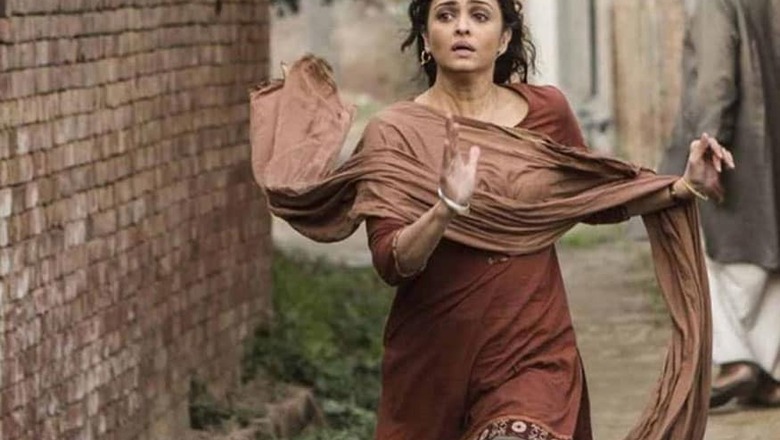
views
Director: Omung Kumar
Cast: Randeep Hooda, Aishwarya Rai Bachchan, Richa Chadda, Darshan Kumar
It isn't merely a coincidence that Aishwarya Rai's most memorable work has been in Sanjay Leela Bhansali's films, her theatrical, heightened style of performance generally complementing his operatic filmmaking.
In Sarbjit, directed by Omung Kumar (he incidentally served as art director on two of Bhansali’s films), the actress works herself up into a lather – all flared nostrils, bloodshot eyes, and flailing arms – to play Dalbir Kaur, the sister of Sarabjit Singh, who toiled away tirelessly over two decades hoping to secure his release from a Pakistani prison, where he was eventually killed in an attack by prison inmates.
Alas, Omung Kumar is no Bhansali. He cranks up the melodrama, but fails to deliver a coherent, riveting experience.
The matter of Sarabjit's real identity has been a contentious one. Pakistan has repeatedly said he was an undercover RAW agent responsible for bomb blasts in Lahore and Faisalabad. His family has insisted he was an innocent farmer who accidentally strayed across the border while drunk. Told from the perspective of Dalbir, the film is a straightforward story of injustice and struggle. There are no grey areas here, and zero objectivity.
Sarabjit, played by Randeep Hooda, languishes in prison for 23 years – from 1990 to 2013 – and the actor's transformation from a would-be-wrestler to a skeleton of a man, rotting away both internally and on the outside, is deeply affecting. As a man on death row, unable to fully grasp how he found himself in this situation, Hooda internalizes the helplessness and despair of Sarabjit to great effect. It's a haunting performance that stays with you.
But the film puts Aishwarya’s character Dalbir in the driver's seat. We watch as Sarabjit's sister repeatedly chases after ministers, leads hunger protests, and campaigns relentlessly for her brother's freedom. Aishwarya commits to the role, sacrificing vanity for her art, seldom letting her amazing beauty distract from the character. Too bad she's required to scream and shout and weep copiously to express her anguish; the shrillness does her no favors.
In quieter moments – like one in which Dalbir can't bear to part with her stillborn baby – the actress shines.
It's a shame the incredibly talented Richa Chadda gets very little heavy lifting to do here as Sarabjit's loving but diffident wife Sukhpreet, who is left to mostly raise their two daughters, and stand by Dalbir as she moves mountains to negotiate her brother’s release. There is feeling even in Richa’s decidedly deadpan performance, but she gets only one scene, late into the film, to really show her chops.
Unlike the director's last film Mary Kom, whose over-simplistic script never provided a broader perspective on key issues related to the protagonist's journey, the screenplay of Sarbjit (by Utkarshini Vashistha and Rajesh Beri) reveals how the tense political relationship between India and Pakistan and repeated terror attacks on India impacted Sarabjit's case.
There is nuance and sensitivity in the portrayal of ordinary Pakistanis too, and a case is made against illegal detentions on both sides of the border. Still, the writers can't resist the usual jingoism, and some easy jabs at our neighbors, particularly an angry outburst from Dalbir about their tendency to backstab.
One of the most moving scenes in the film is a reunion between Sarabjit and his family in prison; I found my eyes welling up during this bit. Not everything else is as convincing and effective, however.
The matter of Dalbir's marriage – her breakup, and sudden reconciliation with her husband – is never clearly explained, neither is the exact role of a Canadian Human Rights group that is fleetingly referred to.
We are told the man actually responsible for the blasts that Sarabjit has been implicated for, is found and arrested in India. But that story thread is never adequately explored. Structurally too, the script is flawed, with flashbacks and song sequences routinely breaking an occasionally compelling narrative.
In many ways Sarbjit feels half-baked and wanting. But the performances – particularly Randeep Hooda's – keeps you invested in what's on the screen. It's not a perfect film, but there is enough to appreciate here. I'm going with a generous three out of five.
Rating: 3 / 5
What's your reaction to Sarbjit
Write your own review and win prizes


















Comments
0 comment